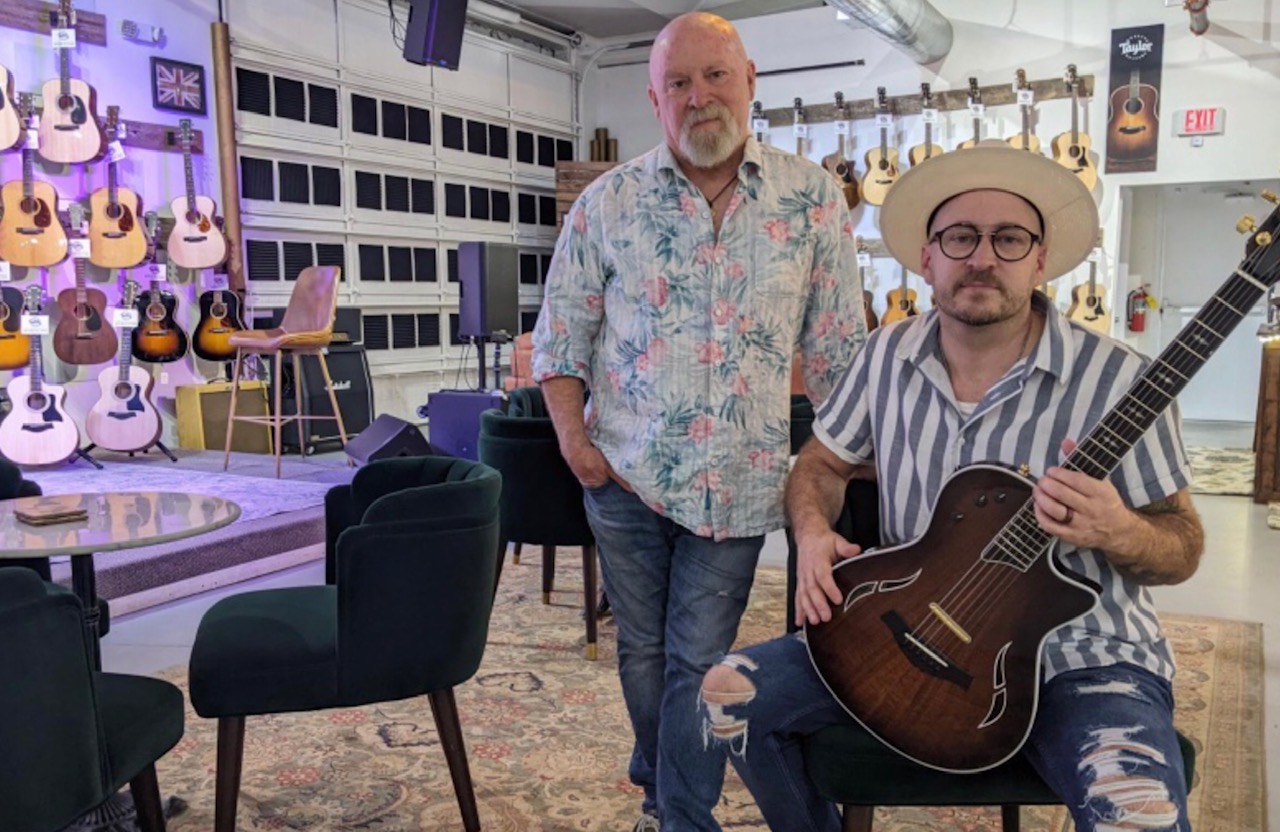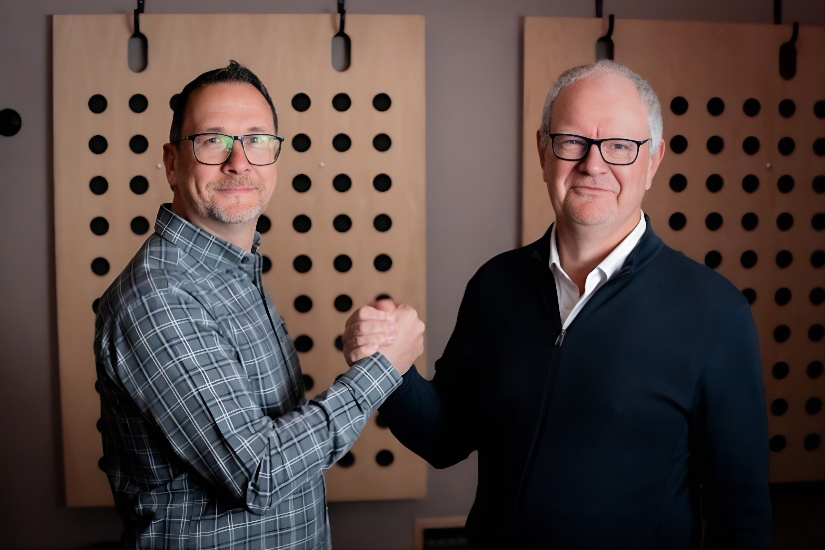
Seven C Music's co-owners David Hosler (left) and Joel Hosler.
In the wake of Hurricanes Helene and Milton, MI retailers and suppliers in Florida and North Carolina have been hit hard, facing not only physical devastation but also operational challenges. Hurricane Milton, which hit Florida on Oct. 10, and Hurricane Helene, which made landfall on Sept. 26 and caused severe flooding in Florida, Georgia and the Carolinas, created a complex impact for MI businesses.
David Hosler, co-owner of Seven C Music in St. Petersburg, Florida, which specializes in selling and repairing high-end guitars, described his store’s firsthand experience dealing with Hurricane Milton:
“The whole city [was] pretty much a disaster,” Hosler said. “We closed the store on Tuesday afternoon [Oct. 8], and we opened back up on Tuesday [Oct. 15] and put guitars back on the wall. We still didn’t have internet. There was no water available and no sewer available for at least a day. We’re doing as much free repair work we can for working musicians who now have no work here. The whole beach area is wiped out. There’s at least 20 performance venues here that are currently either completely gone or who knows what’s going to happen with them. It’s pretty disastrous.”
To prep for natural disaster emergencies, Hosler said Seven C staffers boxed up the guitars to prevent humidity and flooding to damage any of the gear.
“We probably got 40 guitars that are water damaged from the first that came through,” Hosler said. “We’ve got them in controlled environments, trying to see what can be saved. People have been walking in with entire collections that went underwater, vintage instruments, everything, and we’re doing all we can to help them.”
Evan Rubinson, CEO and president of Meters Music, which is headquartered in Tampa, Florida, said challenges ranged from immediate needs, such as a lack of access to medicines, power outages, emergency evacuations and flooding, to business challenges, such as experiencing severe shipping delays and functional work delays without internet or power.
“Hurricane Helene and Hurricane Milton, making landfall in Florida within two weeks of each other, was absolutely devastating for nearly three-quarters of Florida, not to mention the mayhem Helene caused in the unexpecting Carolinas,” Rubinson said. “As for our Meters Music operations here in Tampa, it felt like we [were] closed more than we [were] open over those three weeks. Between perpetual power outages, lack of internet, flooding, team members’ homes being destroyed, and shipping providers canceling most services for our area, it was a challenging time.”
Also headquartered in Tampa is Violin Shop Tampa, where Hurricane Milton struck during the critical school music rental season.
“The local music community faced significant disruptions due to the hurricanes, particularly in Hillsborough, Pinellas, and Pasco counties, where schools were shut down for cleanup efforts, including power restoration, flooding and debris removal,” Morency said. “For students who took their instruments home, we had parents reach out or bring in instruments damaged by water that seeped into the cases.”
Nestled in Asheville, North Carolina, is custom guitar-designer Aluminati Guitars, which remained without power for a week after Hurricane Helene and without internet for nearly two. Power was eventually restored around Oct. 5. Despite the operational hurdles, owner James Little emphasized that the primary challenge was the financial impact caused by the lost revenue during the closure. One silver-lining, however was Aluminati Guitars was able to continue paying employees throughout the hurricane-induced shutdown.
“We were fortunate enough to be able to pay our employees during this time,” Little said. “They were able to go and volunteer and do things without having to worry about being able to live in the meantime.”
In the days following Helene, local musicians, business owners, and residents banded together to support each other through various events and initiatives.
Also in Asheville is legendary synth brand Moog Music, which took swift action in response to Hurricane Helene by suspending all operations to focus on the well-being of its employees. While the company had sufficient materials to continue instrument production, access to and from the facility was disrupted due to extensive damage in the area.
“One of Moog’s core values is ‘Humbly Work Together,’ and this really came alive as the people at Moog rallied to help themselves, their families and their coworkers,” said Joe Richardson, Moog’s president. “The team stayed in contact through group messages, checking on the well-being of colleagues and former employees, and providing updates about their safety and local conditions. Employees coordinated efforts to distribute essentials, including water, snacks and gasoline, and even set up a command center at our main production location to facilitate communication and logistics.”
Some specific acts of care included employees offering their homes to those without power or water, organizing supply runs to replenish food and other needs, and delivering portable showers and other practical aids to help with hygiene. The Moog community also worked with local disaster relief organizations to bring in additional supplies and offered emotional support to those affected.
While Moog can continue production in the near term, challenges in Asheville’s wider creative community have continued to be felt.
“The artists and creatives who call Asheville home add to its creative energy,” Richardson said. “We hope that the view of Asheville and Moog’s commitment to the city aren’t forgotten as the recovery and cleanup efforts remain front and center in the region. We will make our historic Moog synthesizers here, with this region hosting the people who make them special. It is difficult to measure disruption in these terms, but it’d be wrong not to highlight the importance of others in the community who help keep creativity high. We need creatives and artists in the region to inspire the ideas that later become instruments.”
According to Richardson, inMusic Brands — the new owners of Moog Music — provided immediate support to Moog and its employees, helping during the early days that followed the hurricane. FEMA disaster recovery centers provided access to drinking water, bringing supplies and providing the basic needs essential to cope.
Just south of Asheville sits Serek Basses, a boutique bass maker in western North Carolina that’s still grappling with the aftermath of Hurricane Helene, which left a significant mark on its wood shop when a 100-foot pine tree toppled onto the shop, creating a hole in the roof and exposing essential equipment to rain damage. At time of press, the team was still in the process of repairing the roof and replacing damaged tools, aiming to fully resume production as soon as possible. Serek Basses started taking donations through social media and Venmo to gather supplies.
“We filled up a trailer full of supplies to bring back down to the area, and then the remainder of those proceeds was coordinated to local charities,” said Jake Serek, owner. “There’s a wood supplier called Green River, and their warehouse got completely destroyed. We’re going to team up and buy some of the wood that they’ve been able to salvage from the flooding and build a series of instruments for charity. The proceeds will go back to hurricane relief.” MI











